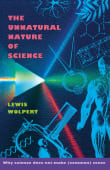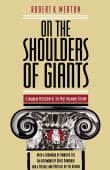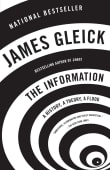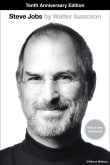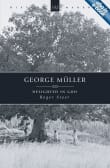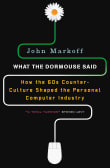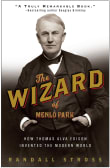The Victorian Internet
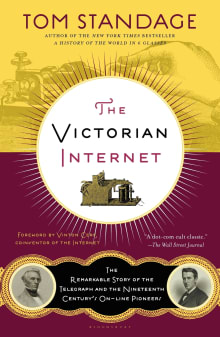
Book description
A new paperback edition of the book the Wall Street Journal dubbed “a Dot-Com cult classic,” by the bestselling author of A History of the World in 6 Glasses-the fascinating story of the telegraph, the world's first “Internet.”
The Victorian Internet tells the colorful story of the telegraph's creation and…
Why read it?
5 authors picked The Victorian Internet as one of their favorite books. Why do they recommend it?

I never knew that the telegraph started as a series of physical towers conveying coded messages by line of sight from one hill to another. It took years for the word telegraph to refer to the system we know so well, relying on electrical lines, the telegraph key, and Morse code.
I love how Standage finds the through line from this 19th-century communications network to the Internet we all take for granted today.
From Howie's list on innovators and innovation.

The Victorian Internet traces the development and impact of the telegraph in the United States in the nineteenth century, and explicitly draws parallels to the emergence of the Internet in the twenty-first century.
It is a wonderful source of perspective on the tumult and turmoil of our Digital Age by reminding us that any major new means of communication is sure to generate social upheaval, including a new generation of winners and losers.
The book is also very provocative and enlightening by sharing plenty of anecdotes about how people reacted to the emergence of the telegraph—how ordinary folks immediately used…

Engelbart’s seminal 1962 book on the possibilities of networked computers builds directly on Bush’s ideas, laying out a groundbreaking new vision for how computers might work.
In collaboration with a team of brilliant collaborators at the Stanford Research Institute, Englelbart began to outline a revolutionary vision for a new kind of collaboration between people and computers. He argued for a new class of technology that would enable computers to augment—rather than supplant—human intelligence. Engelbart’s work led directly to the invention of the graphical user interface, hyperlinking, and pointing devices like the mouse (another Engelbart invention).
Though little read today, Augmenting…
From Alex's list on forgotten pioneers of the Internet.
If you love The Victorian Internet...

This delightful book traces the history of the telegraph and compares its impact on the world in the nineteenth century to that of the internet in the twenty-first.
The spread of the telegraph was roughly concurrent with the railways, and together they sped up the entire pace of life. The world got smaller, news traveled faster, and businesses were completely altered.
As with the internet, there were even scams, problems with privacy, and long-distance romances! Another sad parallel was that widespread expectations for this invention to bring greater understanding among nations and perhaps more peace to the world did not…
From Jennifer's list on unique insights on the Victorians.

I have no idea where I found this book, but it quietly snuffed out any plans I may have had to write a dedicated history of telegraphy. How could I ever match Standage’s tales of telegraphers sending each other jokes in down-time that were “smutty or anatomically explicit”, or how the telegraph stopped eloping couples from getting married at Gretna Green?
The simple fact is that I am fairly expert on 19th-century technology, and especially in the travails and effects of early telegraphy, but I knew none of this. It’s an entertaining eye-opener.
From Peter's list on history and science.
Want books like The Victorian Internet?
Our community of 12,000+ authors has personally recommended 31 books like The Victorian Internet.

